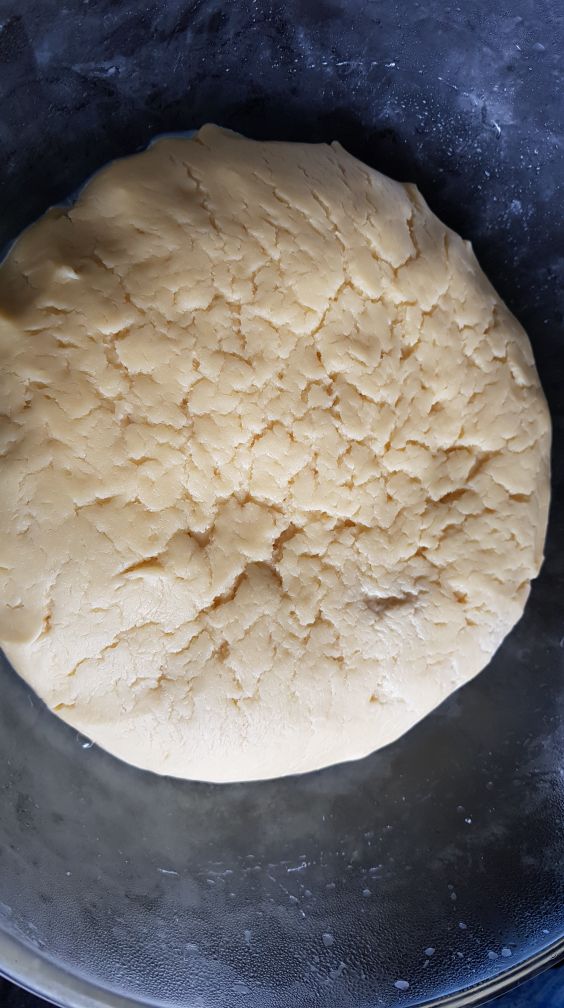I made a brioche/sweet dough and did a cold rise overnight. The risen dough had cracks at the top of it. See:
Is this normal? Or symptomatic of a problem?
I used a glass bowl and covered it with plastic wrap. The bowl was oiled, and I also oiled the outside of the dough. When the dough was done kneading, it was very elastic (passed window pane); it also was a bit on the wetter side, I think -- it was hard to ball it up as it didn't want to hold its shape.

